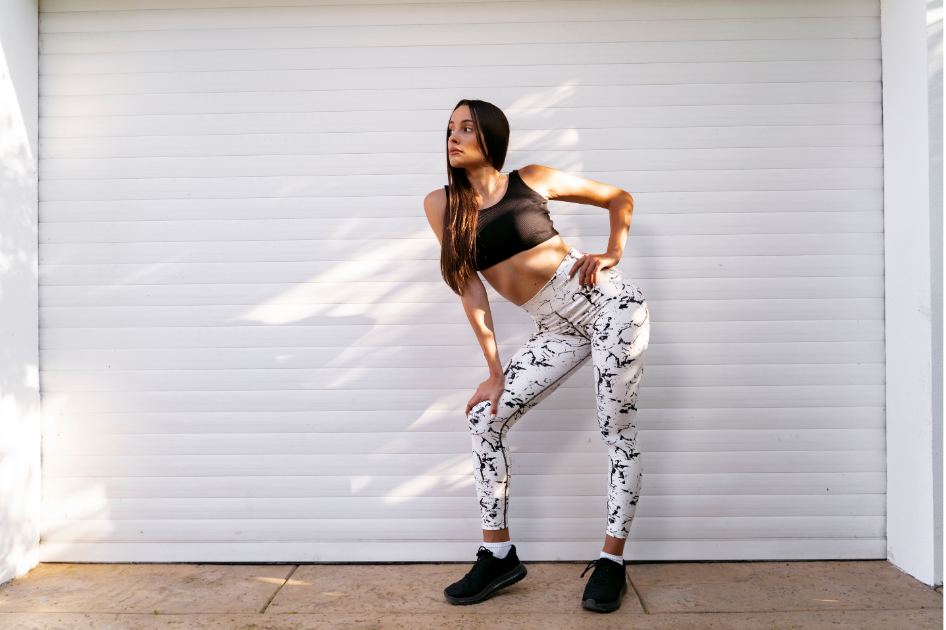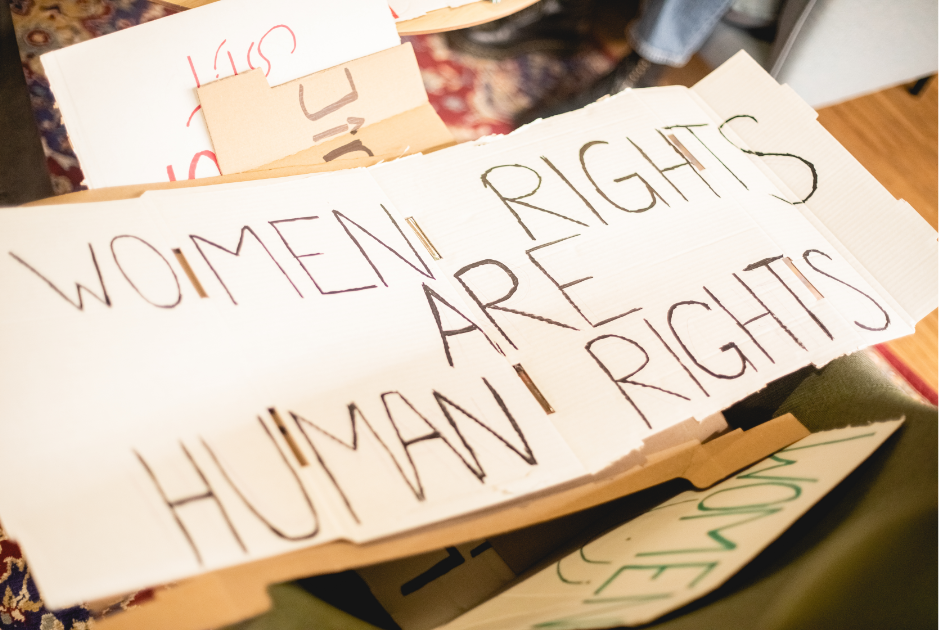These days you can't go anywhere without seeing superheroes — or someone (rightly) decrying their lack of diversity.
As both a lifelong comic book fan and a lifelong white dude, I understands both sides of it. On one hand, it's exciting to see these iconic characters finally get the spotlight after 50-plus years of being relegated to four-color funny books. I mean, we get at least seven different superhero blockbusters this year alone, and that's not even counting television!
But on the other hand, well ... let's just say that guys like me have never been left wanting for role models that look just like us.
Fortunately, things aren't quite the same as they were back in 1939, when Superman first showed up on the scene. Sure, there are still plenty of characters (and fans) who stick to their traditions of Stoic Manguy Hero and The Sexy Lady That He Rescues All the Time. But now it's easier than ever to find comic books that accurately reflect the world we live in — where there are more distinctions between people than the color of their spandex over-the-pants underwear.
Here are just a few of our favorites:
1. "Spider-Man"
Wait what?! Don't worry, Peter Parker is still around. But a black Hispanic teenager named Miles Morales is also Spider-Man, thanks to Brian Michael Bendis, a Jewish-American comic book writer who wanted a more diverse role model for his adopted children. Originally introduced in 2011 as part of Marvel's "Ultimate" universe (a parallel alternate continuity ... because comics), the new Spider-Man comic launching in February will place him firmly beside all your other favorite heroes.
Image by Sara Pichelli/Marvel.
2. "The Wicked + the Divine"
"Every ninety years, twelve gods incarnate as humans. They are loved. They are hated. In two years, they are dead." It's happening again right now — and this time, they're all beloved pop stars. That's the basic premise of "The Wicked + the Divine," which explores fandom, death, divinity, and the irresistible allure of pop music. While the book itself is set in England, the pantheon of deities pulls from every culture and historical period and mashes it together with a cast that spans the spectrum of race, gender, and sexuality. And it all oozes with a rock 'n' roll sex appeal.
Image by Jamie McKelvie/Image Comics.
3. "Midnighter"
When he was first introduced, Midnighter and his now-ex-husband, Apollo, were basically a gay homage to Batman and Superman. And if that sounds like the concept to a cheap sketch comedy, that couldn't be further from the truth. Midnighter is more powerful than Batman and at least as badass — if not more. (Let's just say his early appearances were part of DC's adult-oriented publications.) He was also the first gay male to headline an ongoing DC comic book, and the current iteration is the first time it's being scripted by an out writer, too.
Image by David Messina/DC Comics.
4. "Lumberjanes"
Speaking of adult content, "Lumberjanes" is probably the most delightful all-ages comic you will ever read. The girls at the (big breath!) Miss Quinzella Thiskwin Penniquiqul Thistle Crumpet's Camp for Hardcore Lady Types (yes, really) get into all kinds of fantastical mischief as they learn about friendship and about themselves. It's heartfelt. It's fresh. It's universal. It's like the best parts of "Buffy the Vampire Slayer," "Scooby-Doo," and "Salute Your Shorts" all rolled into one. Did I mention that it also features a transgender cast member and can help kids and adults alike to empathize with issues of gender dysphoria?
Image by Brooke Allen/BOOM! Studios.
5. "Ms. Marvel"
If you thought Peter Parker was the only character who is relatable as the lovable loser whose superhero antics get in the way of getting his life together, then you haven't read "Ms. Marvel." Kamala Khan is a nerdy teenage girl living in Jersey City when she discovers that she has superpowers. Think about your own most embarrassing high school experience; now imagine that it happens when you're teaming up with Wolverine and that you can't tell anybody about it and that your parents still won't let you go to that party with all your friends — ugh. On top of all that, Ms. Marvel is the first mainstream Muslim superhero comic, scripted by a Muslim writer, and it doesn't shy away from all the complications that come along with that.
Image by Giuseppe Cammuncoli/Marvel.
6. "The Private Eye"
It's cool enough that "The Private Eye" is a pay-what-you-want digital comic about Internet privacy that was specifically designed to be read on a computer or tablet. It's also an incredibly compelling detective story with a bisexual, biracial protagonist, set in a near-future society after The Cloud burst and released everyone's private information out into the world. The international and highly acclaimed creative team have also made the book available completely DRM-free, with translations in English, Spanish, Catalan, and Portuguese. You have pretty much no reason not to read it all right now, and the only reason you'll want to stop reading is just so you can change your passwords.
Image by Marcos Martin/Panel Syndicate.
7. "Bitch Planet"
"Bitch Planet" is a science-fictional feminist riff on '70s exploitation movies, set in a dystopian future where "non-compliant" women are sent to an off-planet prison where they learn to be subservient — so, maybe not so different from the real world. The allegory is obvious, but the action and the characters are anything but. Writer Kelly Sue DeConnick never shies away from going there, wherever "there" might be. Think "Orange is the New Black" but in space. Or maybe Margaret Atwood meets "Inglorious Basterds." Either way, it's awesome.
Image by Valentine DeLandro/Image Comics.
8. "Black Panther"
We've written before about why we're excited to see MacArthur-Award-winning author Ta-Nehisi Coates take over the new "Black Panther" comic book, but it still bears repeating. The leader of a highly-advanced African nation, T'Challa is a super-powered super-genius who has served as a member of The Avengers as well as the Fantastic Four. And, oh yeah, he has that movie coming out soon, after his upcoming debut in "Captain America: Civil War." Let's just say that it's about time he had his chance to shine. While Coates' comic doesn't debut until April, you can currently catch Black Panther in the Marvel comic "Ultimates." (Not to be confused with the aforementioned Ultimate universe continuity of ... oh, forget it. It's comics.)
Image by Brian Stelfreeze/Marvel.
9. "Virgil"
Like "Bitch Planet" above, "Virgil" is a twist on '70s exploitation films, only this time, it's a black, queer revenge story. Virgil is a Jamaican policeman who is forced to hide his sexuality from his fellow officers, especially when they use their authority to bully the brothels. But when his secret is exposed and his partner is kidnapped — well, to say the least, there aren't any funky "Shaft" guitar licks during Virgil's brutal, bloody odyssey to save the man he loves. Added bonus: "Virgil" is a complete graphic novel (as opposed to a collected series of comic book issues), which means you get the whole story in one book. But speaking from personal experience, I should warn you not to crack it open right before bedtime or you won't go to sleep.
Image by JD Faith/Image Comics.
10. "Batgirl"
Barbara Gordon is more than just a Batman knockoff in a purple suit. The current "Batgirl" comic makes her into her own force to be reckoned with, an incomparable computer hacker and crimefighter who's still dealing with the ramifications from a traumatic crippling at the hands of The Joker.
Also? Her roommate and friend Alysia Yeoh is the first transgender character in a mainstream superhero comic (which made her recent wedding the first transgender wedding in a mainstream superhero comic, too).
Image by Daniel Sampere and Vicente Cifuentes/DC Comics.
11. "Trees"
10 years ago, 10 strange alien monoliths — the titular "trees" — landed on Earth. And ever since, they've ... just kinda been there, as if these extraterrestrials had come to Earth in search of intelligent life but just gave up. "Trees" explores the personal lives of its international ensemble cast and the ways they've been affected — or not — by the presence of the Trees. From Slavic scientists to Brazilian drug-runners to Manhattan businessmen to queer artists in China's quarantined "cultural zone," it's a socio-political tapestry about the aftermath of the most disappointing alien invasion ever.
Image by Jason Howard/Image Comics.
These stories and characters might be fiction, but that doesn't mean they can't reflect the world we live in.
People are resistant to change, and we can't change that about them. But stories can help us empathize with other people and understand the way we live.
So while it is important to applaud the diverse casts in these and other books, what makes these comics great is the same thing that makes any comic great: a cast that we connect with, regardless of their gender, race, age, or sexuality. Even if you're a white dude like me, there's still a lot that you can learn from a super-powered Pakistani-American girl. (Which is only fair, since we've expected everyone to empathize with us for so long.)





 What was I doing again?
What was I doing again? A space waitress at work.
A space waitress at work.  Waking Up Funeral GIF
Waking Up Funeral GIF Rihanna Nails GIF
Rihanna Nails GIF Yoga pants.Image via Canva.
Yoga pants.Image via Canva. Our natural lashes are nice just the way they are!
Our natural lashes are nice just the way they are! One step forward, many steps back. Image via Canva.
One step forward, many steps back. Image via Canva.  Homelessness is especially rampant on the West Coast.Image via Canva
Homelessness is especially rampant on the West Coast.Image via Canva